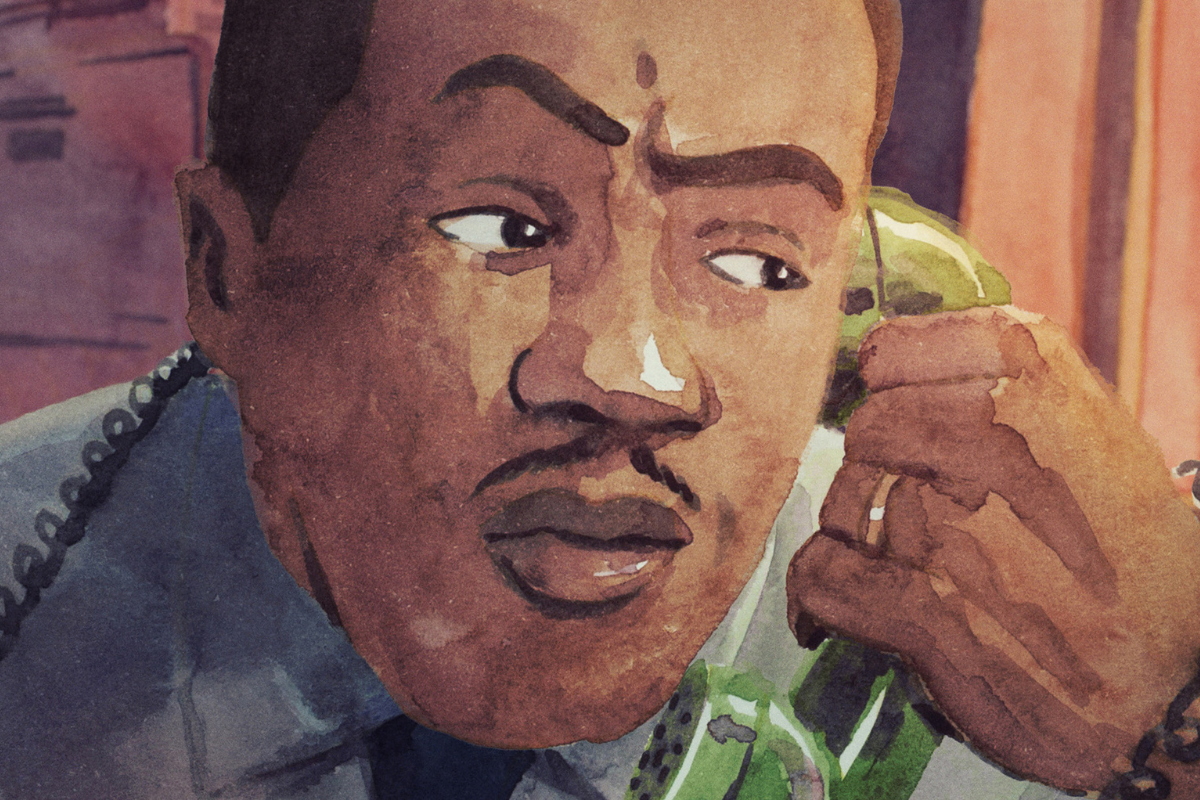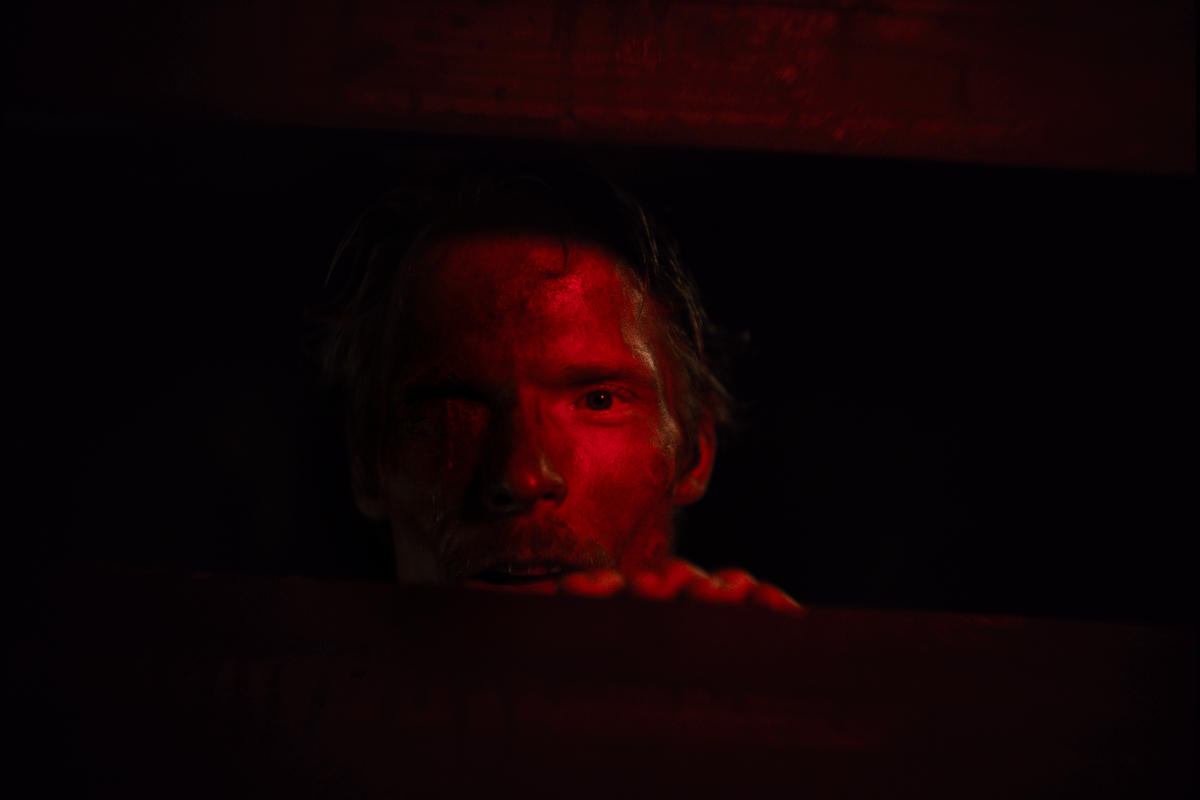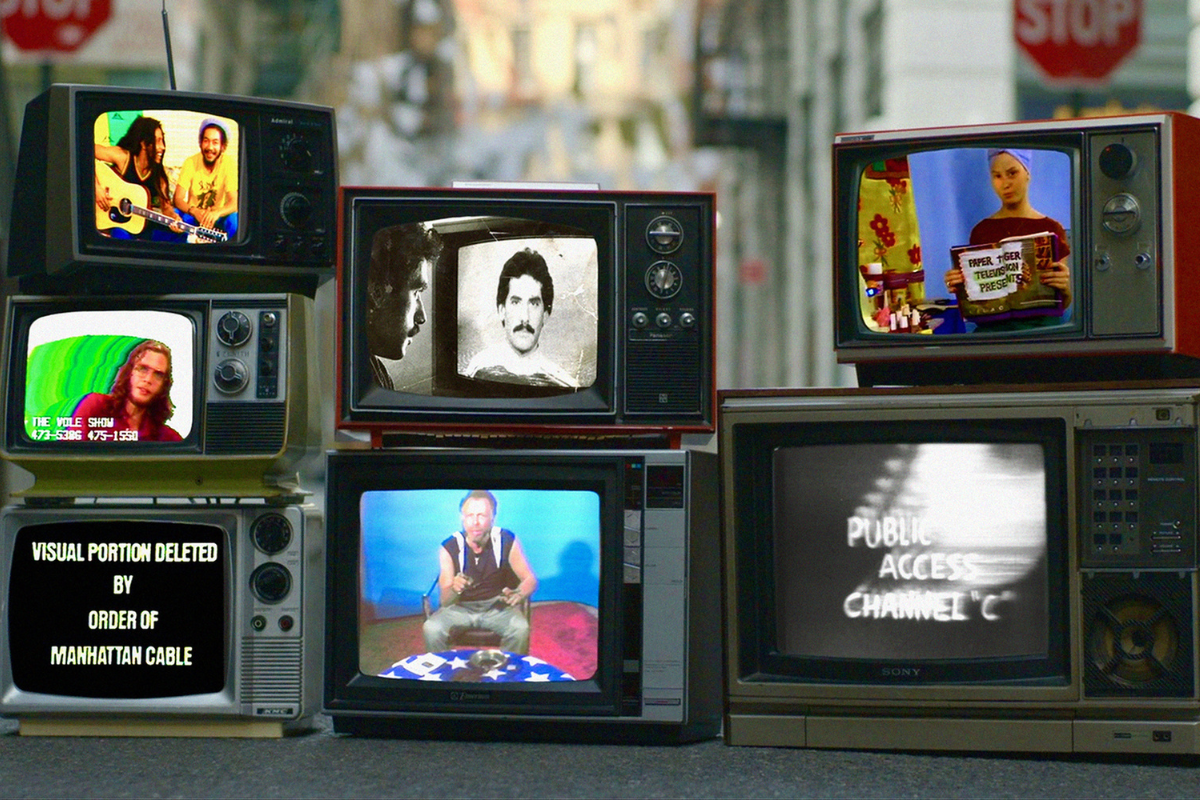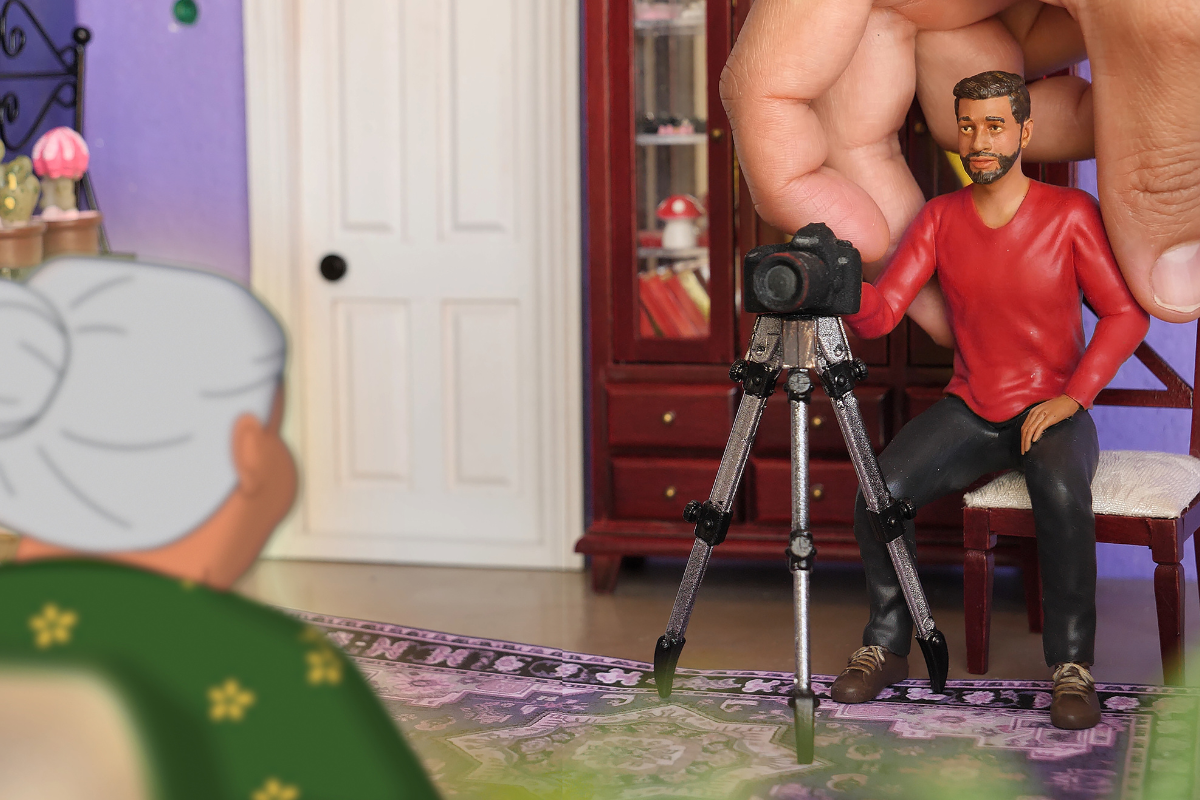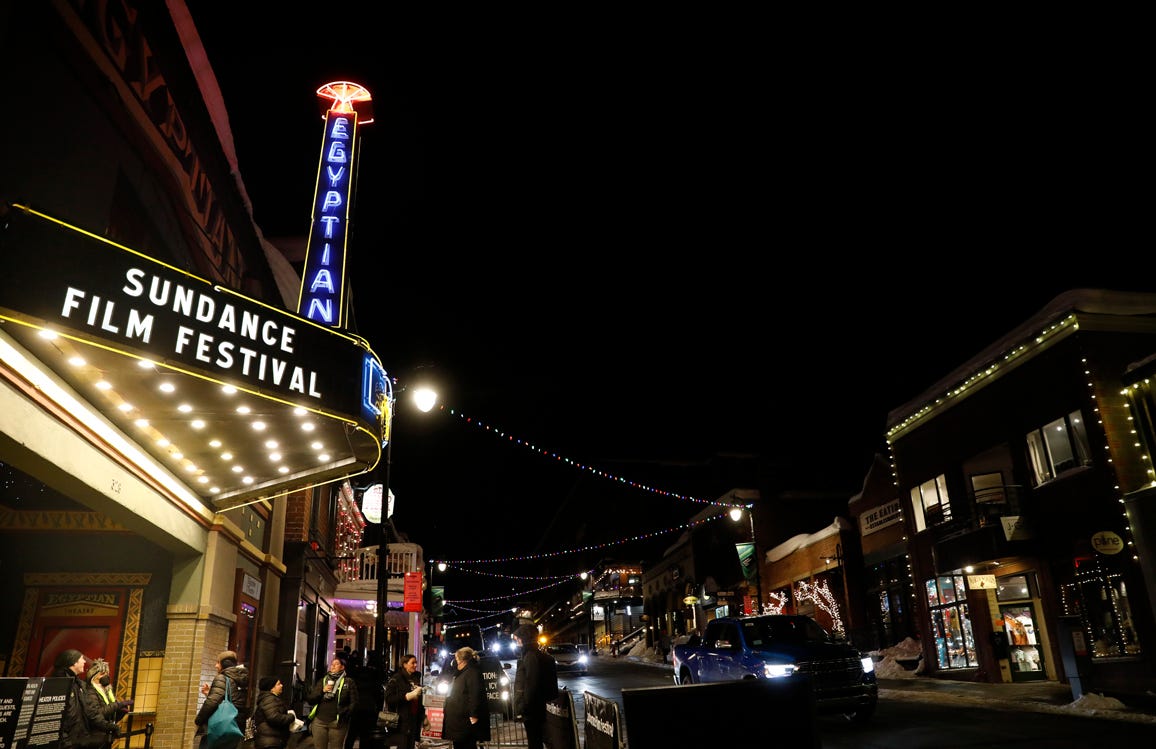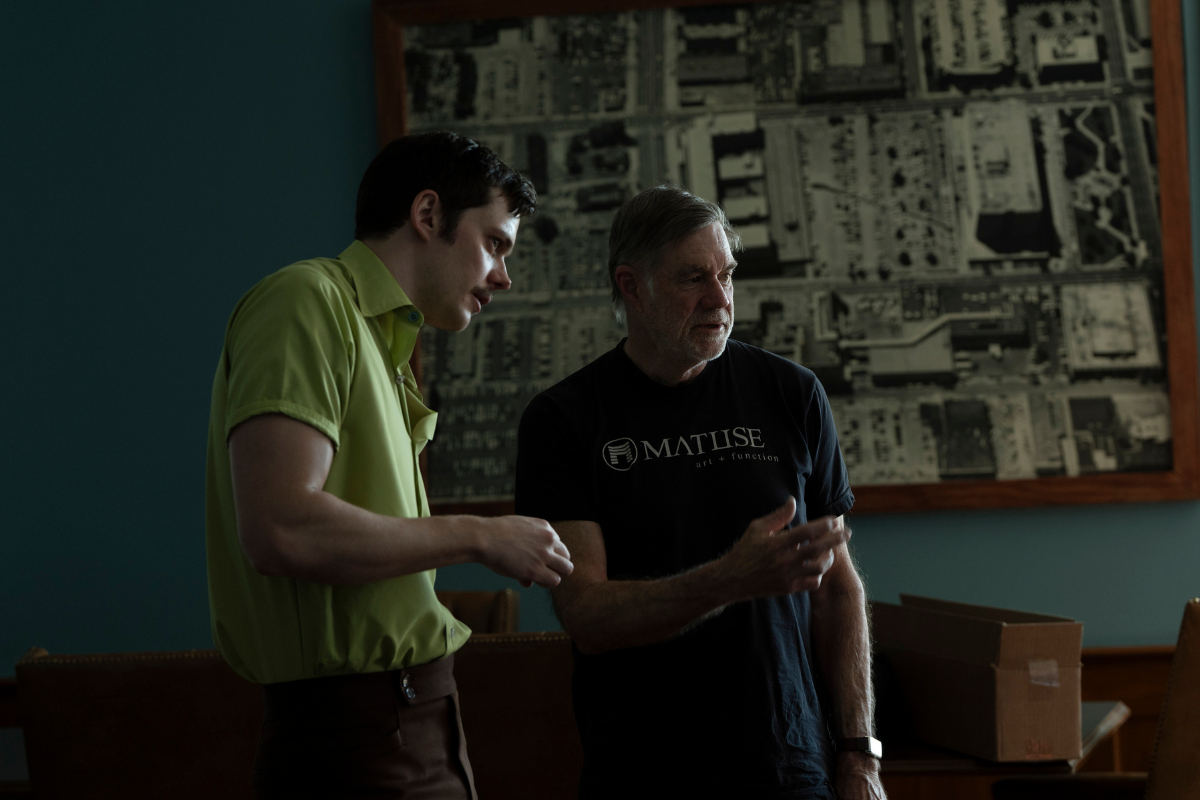How Two Screenwriters Navigated Their First Feature Film Not Having a Script
Filmmakers Dustin Sweet and Dave Merlino share what challenges they faced making their first feature documentary film ‘APACHE BLUES: Welcome Home’ and how they creatively and collaboratively persevered.
On Sunday, July 2nd, our feature film, APACHE BLUES: Welcome Home, will be making its world premiere at the Dances With Films Festival in the world famous TCL Chinese Theaters in Hollywood, CA. One common question filmmakers get asked is, “What challenges did you face while making this movie?” Well, there were a few. It’s our first ever feature film, so there was some learning along the way. A worldwide pandemic in the middle of filming was not something we had planned for in pre-production. Anything else? Oh yeah, this movie doesn’t have a script. Apache Blues is a documentary. As two guys who originally cut our teeth as screenwriters, that terrified us.
Up until about five minutes before agreeing to make Apache Blues, we would have been the first people to say we didn’t think we would ever make a documentary. But sometimes you hear a story idea and just know that you have to make it. We reminded ourselves that while it might not have been the movie we thought we were going to make, we still get to actually make a movie, and that’s pretty cool.
All we had to do was solve how to go about filming with nothing finite to guide us. So we came up with an interesting plan: we were going to treat pre-production and filming as if we actually did have a script. By treating it like a scripted narrative, we could be methodical in our filming and interviews and probably have this wrapped up in under a year. With the exception of a few really small, minor, insignificant details, that worked out pretty well for us.
Our first step was to break down what we knew of our story. In this case, we were interviewing a select group of veterans who all served together in the same specialized unit in Vietnam, Apache Troop 1/9. They were a quick reaction force (QRF) whose many jobs included scouting areas that showed signs of potential enemy movement, rescuing down helicopter pilots, and helping Ranger teams in contact with the enemy. With the invention of the helicopter, they saw combat an average of four to five times per week, sometimes multiple times a day.
In addition to the pure volume of combat, they had particular instances that jumped off the page. Such as the day their platoon, about 21 soldiers, engaged an enemy battalion, roughly 200-300 soldiers, in all day combat without losing a man. Or the day one of our veterans, Kregg Jorgenson, was shot as embedded CBS News cameras were rolling film to catch the entire firefight. These are their stories. Tales of bravery and courage about the war that we never really heard growing up as the media, text books, and even pop culture seemed incapable of talking about the Vietnam War without applying a political lens of everything else going on at the time.
With this outline, we were set. We’d bang out the interviews making sure to focus on these key events, and build the movie out from there. We’d be done in eight to ten months. No problem. Yeah, we said that.
Our entertainment attorney actually laughed when we told her. She said that’s why she liked working with us. We had a sense of humor. She then warned us that documentaries can take years to make as you have to adapt to what the story really reveals itself to be. More on that later. With pre-production complete, we set out on the road to go make a movie.
This is where the first of those really small details comes into play and we learned the second difference between scripted and documentaries. On a scripted set, everyone knows what their role is before they show up for the first day of filming. You show up, set up, and get to work. Our first interview hit us right in the face that we had never met this man before and were about to set up a camera in his living room and ask him to tell us about his deepest, darkest memories. That’s not an easy thing to do.
So we had to adapt. We decided not to bring the equipment in right away and would just sit with the veterans in their living room and talk. Sometimes those talks were about life in general, sometimes they were about Vietnam in order to help get the men into the right frame of mind to talk about the war. We had to be careful there though, because there were definitely a few good stories that came out before the cameras were rolling. Live and learn.
Our second lesson was to learn to be adaptive in interviews. It’s important to have a plan of key points you want to hit, but you have to be willing to let the conversation go where it wants to go. We want to emphasize the word, “conversation.” You cannot go into this with a straight down list of questions where you’re just waiting for one answer to be complete so you can move on to your next question. That means you’re not listening, and if you are not listening, you won’t know when your story actually reveals itself to you.
This ties into the most important rule we learned for making a documentary versus a scripted movie. If at the end of the process, you have the exact movie you set out to make, you didn’t make a documentary. You made an opinion piece. You knew what you wanted the movie to say, and you went out and found the things that supported your pre-planned notions. You might as well have written a script.
Our story revealed itself in an unlikely way. It was when we turned the cameras off. It was like we could see a weight being lifted off the veterans in real time. You could actually see them take a breath and relax. They would thank us for taking the time to listen. Tell us how good it felt and now maybe they were ready to talk with their families. That was our real story. It wasn’t about us listening to their adventures, it was about them having the opportunity to tell those stories.
This also meant we had to adapt again. We thought this was one round of interviews and on to post. That was no longer the case. We realized that it’s easy to feel good in the moment, but would that good feeling last for these veterans? We can’t talk about the healing power, without offering actual proof of that power. So we made the decision to shut production for a year and then follow up with the veterans, and their families, to see if these talks did have an impact on their lives. We won’t give it away, but the fact that we are premiering at Dances With Films is a pretty good hint to whether or not there was some merit to this idea.
Only a year and some change after declaring we were going to have the movie fully wrapped up we made it to post-production. All we had to do was sort through hundreds of hours of interviews spanning multiple years and process it down into a 90-minute movie without a script to guide us. Add another year onto the project. We did it though. We were done. That’s when we had to adapt again.
We showed the film to a trusted friend, Michael Barrett, who is very knowledgeable in both the documentary and scripted sides of the film world. He told us that he could tell right away that we were screenwriters and attacked it like screenwriters because we had a great story arc and strong conclusion. A conclusion so strong it was almost like it had a bow wrapped on top. Unfortunately, you can’t do that with documentaries.
Documentaries are meant to inspire the audience to go out into the world and take up the call to action you have given them. If we settle our story, they think there’s nothing left for them to do. Being a great teacher though, he led us to ideas about how we could fix this, and that would require some reshoots, maybe add another year onto the movie.
We wish it was a year. You see, at the time we were meeting with our mentor in LA, we were reading social media posts from friends at home and wondering, “Why are people buying so much toilet paper? This China thing can’t be that bad is it?” Spoiler alert, it was. By the time we were able to hit the road, and navigate the log jam of workflow Covid caused when it came to hiring composers, color correction specialists, and all our other post-production needs it was over two more years until the project was finished. But finished we are, with a film we are intensely proud of.
So what lessons did we learn from shooting a movie without a script and how will that help us the next time we make a narrative film? We learned the true meaning of being adaptive, because there is no other way to create a documentary. You have to be adaptive with narrative films as well. That can be hard to do when everything is already outlined and planned before shooting.
Our directing mentor, Darin Scott, explains it best. He teaches that a director is there to be the lens that focuses all of the good ideas on set to make the best possible movie you can make. If someone on set has a great idea, no matter how small their position is, you are dumb to not listen. At the end of the day, the director gets the credit or the blame. So if the assistant to the assistant of the catering director has a good idea, take it. Maybe you have your camera angles planned out but someone points out an even better shot. Maybe it’s the lighting, or the blocking, or the… it goes on and on.
Be adaptive, be collaborative and make the best movie or script you can make. Seriously, how many times have you written Fade Out on the exact script you thought you were making at Fade In?
If you want to see how the one year later interviews went, you can watch APACHE BLUES: Welcome Home at its Dances With Films World Premiere on Sunday July 2 at 5:00pm PST at the world famous TCL Chinese Theaters. Tickets can be purchased here: https://danceswithfilms.com/apache-blues-welcome-home/
About the Authors
Dave Merlino and Dustin Sweet are screenwriters who became directors who became documentarians. Their script BLOODLINES won the Randall Wallace round of the Industry Insider contest, and their script The Lucky Ones placed in the Top 10 of the Final Draft Big Break contest. They experienced success on the festival circuit with their short film HAPPY BIRTHDAY, DAD and their feature debut, APACHE BLUES: Welcome Home premieres July 2 at the Dances With Films Festival. They are also hosts of the KNOW THEIR STORY PODCAST which is available wherever you get your podcasts.
Learn more about the craft and business of screenwriting and television writing from our Script University courses!
Dave Merlino and Dustin Sweet are screenwriters who became directors who became documentarians. Their script BLOODLINES won the Randall Wallace round of the Industry Insider contest, and their script The Lucky Ones placed in the Top 10 of the Final Draft Big Break contest. They experienced success on the festival circuit with their short film HAPPY BIRTHDAY, DAD and their feature debut, APACHE BLUES: Welcome Home. They are also hosts of the KNOW THEIR STORY PODCAST which is available wherever you get your podcasts.


